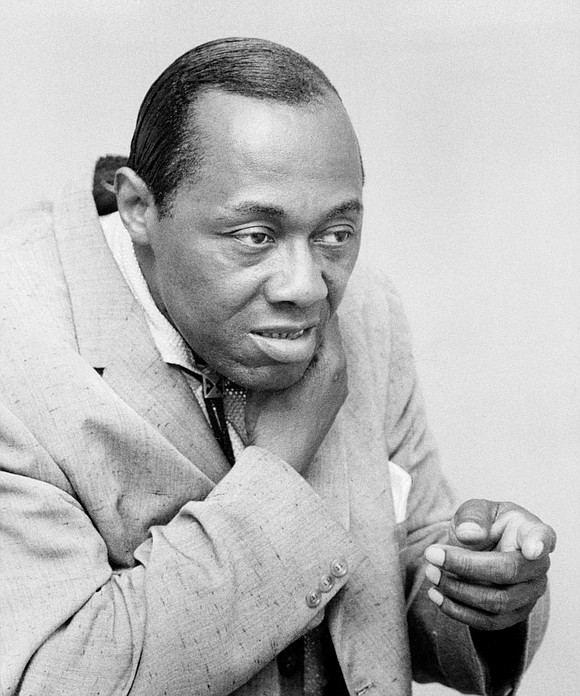Feature Film to Reveal Untold Story of Stepin Fetchit and Hollywood's First Black Movie Star, Lincoln Perry
Style Magazine Newswire | 12/6/2017, 6:58 a.m.
HOLLYWOOD, Calif., Dec. 6, 2017 /PRNewswire/ -- Stepin Fetchit, known as the laziest man in the world, grew from a widely famous character on the big screen of the 1930s to a modern day slur akin to Uncle Tom.
But that's not what Lincoln Perry set out to do when he brilliantly crafted the mumbling, befuddled and shiftless character. Rather, Perry used Stepin Fetchit to break into the oppressively white world of Hollywood, pioneered equal pay and treatment of black entertainers, wrote a column for The Chicago Defender newspaper and fostered a greater conversation about racial fears and prejudice.
Few know, or understand, Lincoln Perry's side of the story. Until now.
Lincoln Perry the Movie, Inc. today unveiled its plans to create a full-length feature film on the larger-than-life figure, supported by veteran Hollywood talent and backed by an equity crowdfunding campaign that will give everyday investors a chance to own part of the film.
The Lincoln Perry feature film will tell Perry's complex story of fame through the rise of Stepin Fetchit and 54 Hollywood films, and of abandonment in his personal and professional life.
"Lincoln Perry was as much a shrewd businessman and civil rights pioneer as he was a talented actor," said Elijah Rock, an accomplished actor, singer, writer and producer who will serve as Executive Producer of the film. "This film sets out to resurrect a man from obscurity – to set the record straight and honor the lasting mark he made while taking a fresh approach to complex societal themes that are sure to resonate with audiences of all races and backgrounds. His story is timeless."
Despite becoming Hollywood's first black movie star and millionaire, following World War II, movie studios were pressured to get rid of black characters like Stepin Fetchit that could be considered demeaning and controversial. Perry was driven out of the business and was virtually blacklisted from Hollywood, only appearing in a few films thereafter.
After years of being misunderstood and vilified for the character he created, Perry was eventually honored with a Special Image Award by the NAACP in 1976 and two years later he was inducted into the Black Filmmaker's Hall of Fame.
Joining Rock on the Lincoln Perry the Movie, Inc. team is a growing roster of other Hollywood veteran producers and equity crowdfunding visionaries. The team includes Brad Wilson, an award winning producer of more than 40 feature films and television projects who formerly operated Robert Duvall Productions, and Casey Bond, a former MLB player turned Hollywood actor whose numerous credits include playing the role of Chad Bradford in the star-studded and Academy Award nominated film Moneyball.
"We are very excited to kick off such a unique filmmaking project, one that will break new ground in a number of different areas," said Producer Brad Wilson. "Best of all, this project represents an incredible opportunity for the population at large – people of all walks of like – to really connect with the team as they create what promises to be one of the most important films of our time."
Discussions are underway with several major Hollywood figures to serve as director of the film, and the team is also carefully vetting a list of talent to be considered for the lead actor role.
The team plans to cover initial production costs through equity crowdfunding, an increasingly popular method of raising capital from everyday investors who can participate regardless of their income or net worth. The Lincoln Perry film will mark the first time equity crowdfunding will be used to produce a full length feature.
"It is only fitting that we honor Perry's legacy by flipping the script on how top-notch major motion pictures are traditionally financed, and making it so that virtually anyone can contribute," said Rock. "Riding a groundswell of support, we are committed to creating a monumental, Oscar-worthy film built by the masses for the masses."





